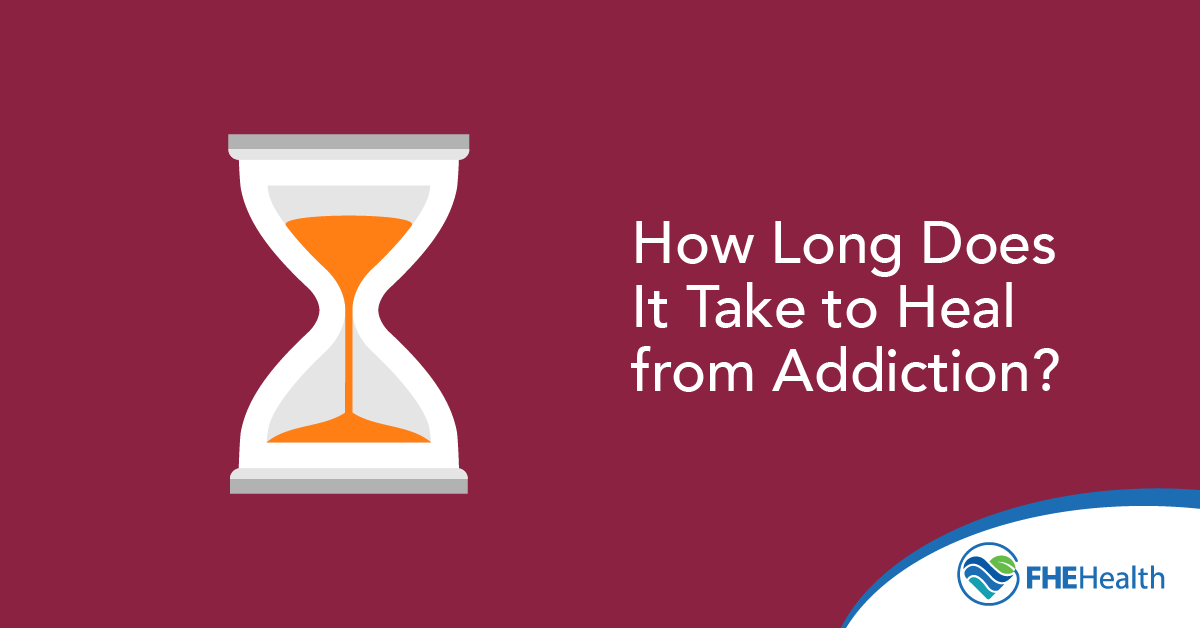
How many days to break an addiction? Substance abuse recovery is a journey, and it’s one marked by milestones, setbacks, healing and growth for the 1 in 6 Americans who are dealing with addiction. While many people ask how long rehab takes, a better question might be: How long does it take to heal, physically, mentally and emotionally from addiction?
The answer isn’t one-size-fits-all. Recovery isn’t a sprint; it’s a layered process that unfolds differently for everyone. But by understanding how long it takes to break an addiction and what healing looks like at each stage, people using substances and their loved ones can set realistic expectations and stay committed to long-term wellness.
How Many Days to Break an Addiction?
When people ask “How many days to break an addiction?” they’re often hoping for a concrete number. The reality? While some habits can begin to shift in as little as 21 to 30 days, true addiction recovery goes far deeper than just breaking a behavioral loop.
Breaking the immediate physical dependence, whether to alcohol, opioids, stimulants or other substances, can take anywhere from a few days to several weeks, depending on the drug, the severity of the addiction and individual health factors.
- Alcohol. Withdrawal symptoms can begin within 8 hours, with a peak between 24-72 hours. While the acute withdrawal phase may last up to a week, post-acute withdrawal symptoms (PAWS) can linger for months.
- Opioids (heroin, prescription painkillers). Symptoms usually begin within 8-12 hours and resolve in 4-10 days.
- Benzodiazepines. Withdrawal can last weeks to months, and tapering should always be medically supervised.
- Stimulants (cocaine, meth). Withdrawal begins within a day and can last 7-10 days, but psychological symptoms like depression or cravings may persist for months.
In short, you can break the chemical dependency in days or weeks, but full healing takes longer.
The Stages of Change in Addiction Recovery
Recovery is often described using the Stages of Change addiction model, which outlines how people transition from addiction to long-term sobriety:
- Precontemplation. The person isn’t yet considering change.
- Contemplation. Awareness grows, and so does ambivalence.
- Preparation. The individual begins planning for sobriety.
- Action. The commitment to change is active. This includes detox, rehab or therapy.
- Maintenance. During the phase, the person sustains the change and prevents relapse.
- (Sometimes) Relapse. This is a return to substance use, which can be part of the journey but not the end of it.
Understanding where someone is on this spectrum helps set realistic timelines. Detox may only take a week, but moving from action to maintenance can take months or longer.
How Long Does Rehab Take?
Rehab is just one part of the healing process. Depending on the program, the typical timelines look like:
- Detox. 5-10 days (medical supervision strongly recommended)
- Inpatient rehab. 28-90 days
- Outpatient or IOP (Intensive Outpatient Program). 3 months to 1 year
- Aftercare/sober living. 6 months to 2 years
The National Institute on Drug Abuse (NIDA) emphasizes that at least 90 days of treatment is needed for the best outcomes. Recovery is most successful when continued support is in place for a year or longer.
How Long Does It Take the Body to Heal From Addiction?
Addiction takes a toll on every system in the body. Healing that damage takes time, and the timeline varies based on the substance, how long it was used and the person’s general health. Here’s what healing looks like physically.
Brain Recovery
Substance abuse changes brain chemistry, particularly in areas tied to pleasure, motivation and decision-making. Dopamine pathways can begin to heal within weeks, but it may take several months for cognitive function to stabilize fully. Memory, focus and mood regulation may continue to improve over the first 2 years of sobriety.
Liver Function
With alcohol addiction, liver regeneration can begin within weeks of abstinence. Mild fatty liver may reverse in just a few weeks. More serious liver conditions like hepatitis or cirrhosis may require months or may never fully heal.
Heart and Cardiovascular System
Cocaine and stimulants stress the heart, leading to hypertension or arrhythmia. Blood pressure and heart rate normalize within weeks, but structural damage may take months to heal or may be permanent.
Immune System
Most immune system recovery happens within 3-6 months, but malnutrition or organ damage can delay this.
Sleep and Energy
Many people report poor sleep for weeks or months after quitting. Circadian rhythms typically reset within 90 days, but it varies by individual.
Nutrition and Weight
Addiction often leads to poor eating habits. Nutritional rehabilitation can take 3-6 months, depending on deficiencies and damage.
Recovery Is a Lifelong Process, But You’re Not Alone
Healing from addiction isn’t linear, and it doesn’t happen on a set schedule. Physical withdrawal may be over in weeks, but emotional and psychological healing can take months or years. That’s not meant to be discouraging; it’s empowering. It means there’s always room to grow, improve and reclaim health.
Support from professionals, peers and treatment centers can make all the difference. Recovery may take time, but every step forward is a victory.
Need help starting your recovery journey? FHE Health offers medically supervised detox, inpatient rehab, outpatient services and long-term support. You’re not just breaking a habit; you’re building a healthier life.






